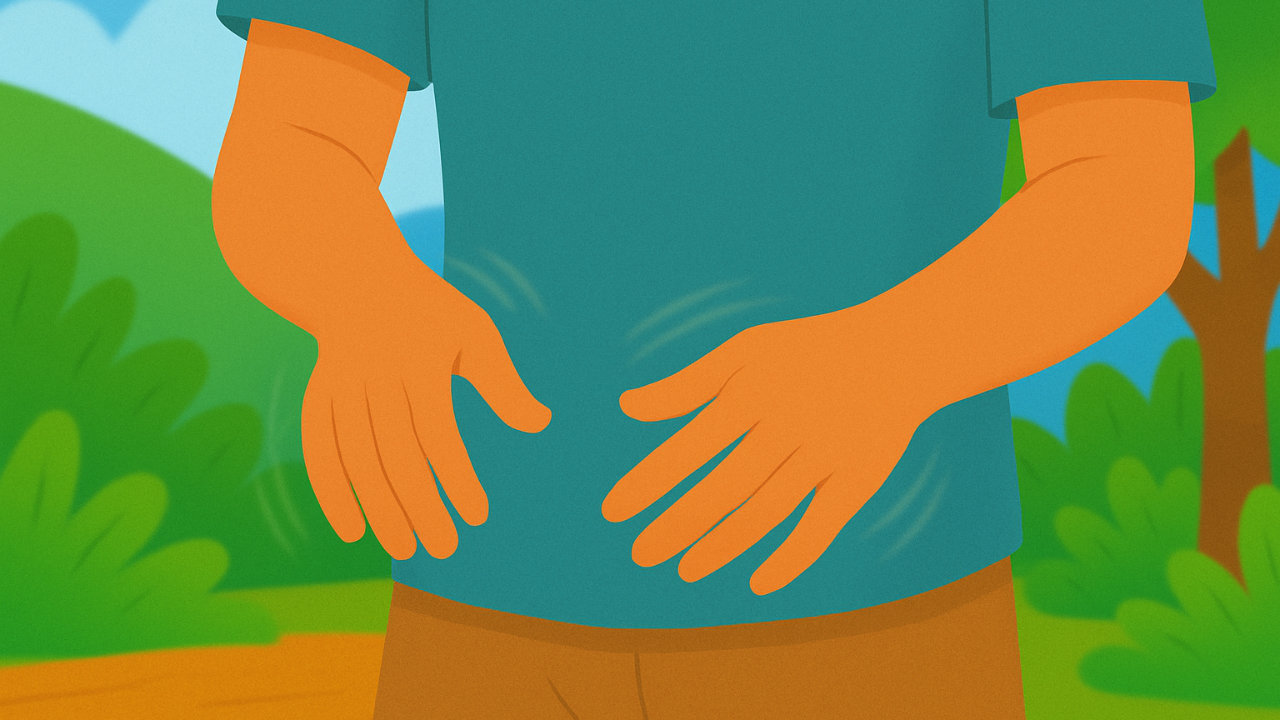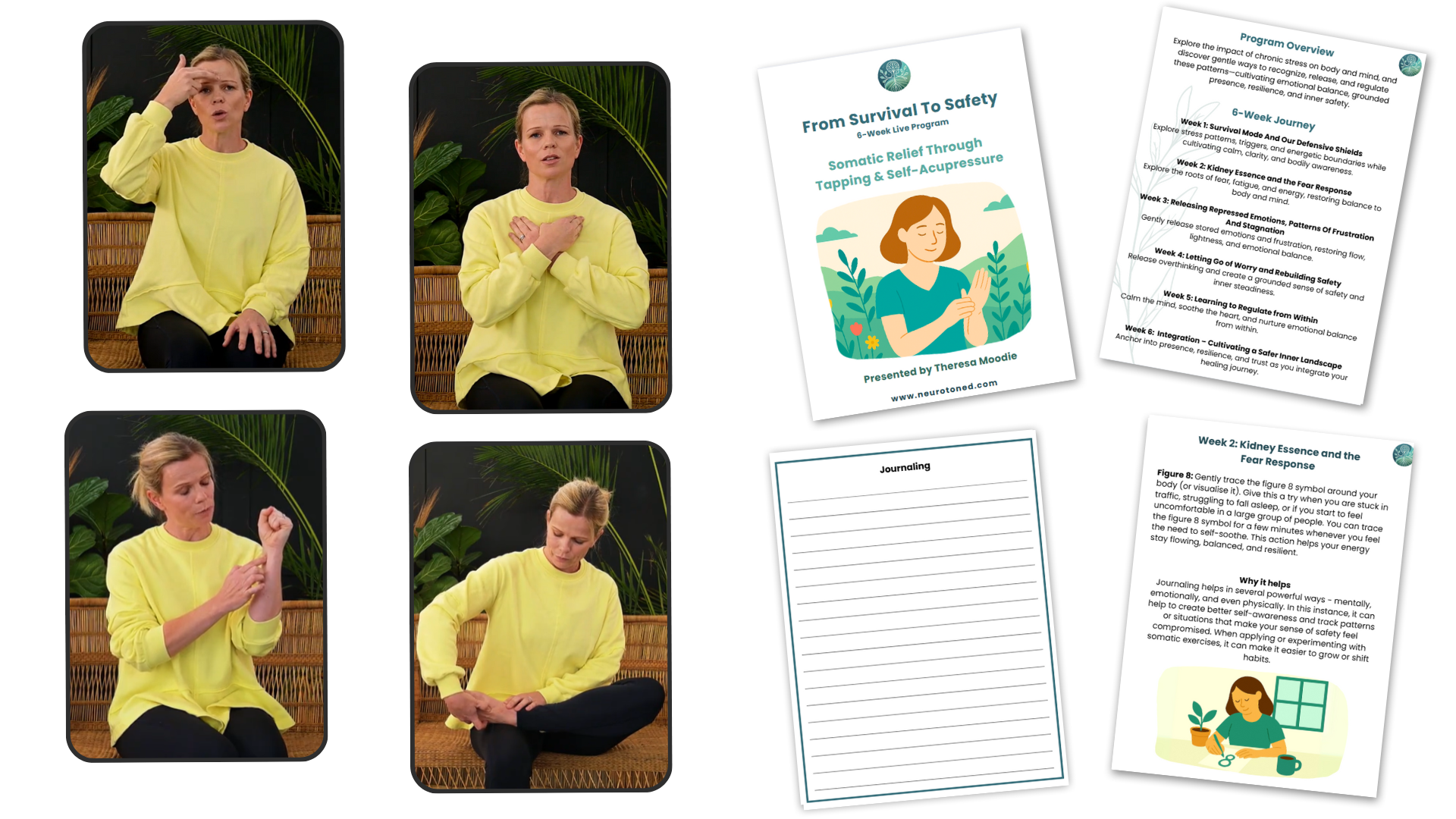
Gentle Somatic Shaking Practice for Beginners
A Gentle Way to Let the Stress Move Through You
If your body often feels locked, heavy, or restless, somatic shaking may help. It’s a natural way to release built-up survival energy without forcing yourself to “relax.” You simply let the body move what words can’t.
Before trying it, you might want to take the Stress Loop Quiz to see which stress state your body tends to get stuck in. That awareness helps you choose how fast or slow your practice should be.
What Is Somatic Shaking?
Somatic shaking is a body-based way of completing the stress cycle. It mimics what animals do instinctively after danger: they tremble to discharge tension. Humans have the same reflex, but many of us suppress it.
When we gently reintroduce shaking, the body learns that it’s safe to move again. This practice may calm anxiety, reduce muscle tightness, and restore a sense of presence.
If you’ve ever wondered why your body goes numb during stress, you’ll see how shaking helps thaw that freeze state and bring sensation back. You can learn more in Why Your Body Goes Numb During Stress (and Gentle Somatic Ways to Reconnect).
Quick Answer Box:
Somatic shaking is a trauma-informed technique that helps release stored stress through natural movement. Beginners start small—often with the legs or hands—and let the rhythm emerge naturally. Over time, shaking may support nervous system regulation, emotional balance, and deeper body awareness.
How to Start Somatic Shaking (5-Minute Guide)
Step 1: Create a Sense of Safety
Find a quiet, private space. Let your feet connect to the ground. Look around and name what you see. Orienting to your surroundings helps the body register safety, as described in Orienting Practice: A Gentle Way to Calm Your Nervous System.
Step 2: Begin From the Ground
Loosen your knees, feel the floor beneath you, and start with tiny tremors in your legs. Let the vibration rise naturally up your body.
Step 3: Let the Movement Grow
As comfort increases, let your arms and shoulders join. Some people like to add sound—a sigh, a hum, or gentle music. You don’t need to perform, just allow.
Step 4: Slow Down and Integrate
After a few minutes, pause. Feel your heartbeat, notice warmth, tingling, or calm. Rest for at least 30 seconds before doing anything else. Integration time helps your nervous system recognize the change.
If you need help recovering from deep shutdown, visit Signs of Dorsal Vagal Shutdown and How to Gently Come Back.
Variations for Different States
When You Feel Wired
Keep your shaking rhythmic and steady. Focus on slow exhales, or combine it with Vagus Nerve Breathing for Trauma Recovery.
When You Feel Numb
Alternate small bursts of shaking with stillness. This pattern, similar to Pendulation: A Simple Somatic Exercise to Calm Your Nervous System, helps your body rediscover movement gradually.
7-Day Micro Plan
| Day | Focus | Time |
|---|---|---|
| 1 | Shake hands and wrists lightly | 1 min |
| 2 | Add knees and hips | 2 min |
| 3 | Include shoulders and spine | 3 min |
| 4 | Use music or rhythm | 3–4 min |
| 5 | Add soft exhales | 4 min |
| 6 | Alternate shaking and stillness | 5 min |
| 7 | End with rest or grounding | 5 min |
If your system is sensitive, repeat earlier days before adding more intensity.
Common Sticking Points
- “I feel silly.” That’s okay. Try it with eyes closed or while listening to soothing sounds.
- “I feel dizzy or spaced out.” Slow down, sit, or add grounding, like Grounding During Panic Without Talk Therapy.
- “Nothing happens.” Shaking doesn’t always produce a big release. Often, calm builds quietly over time, much like in How To Reset Your Nervous System After Trauma.
When you’re ready, take the Stress Loop Quiz to discover what kind of somatic tools your body responds to best.
More Gentle Reads
Disclaimer: This article is educational and not medical advice. If you have health concerns, consider speaking with a qualified professional.
Discover Your Vagal Tone
Find out how dysregulated your nervous system is and get your personalized roadmap to feeling calm, energized, and in control


